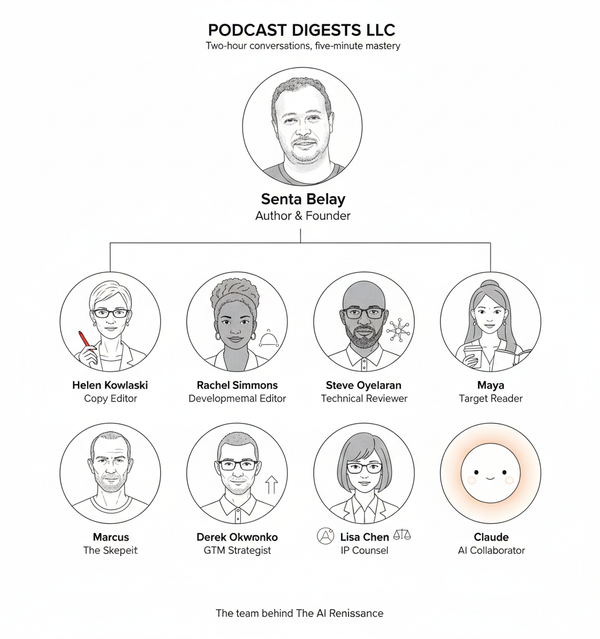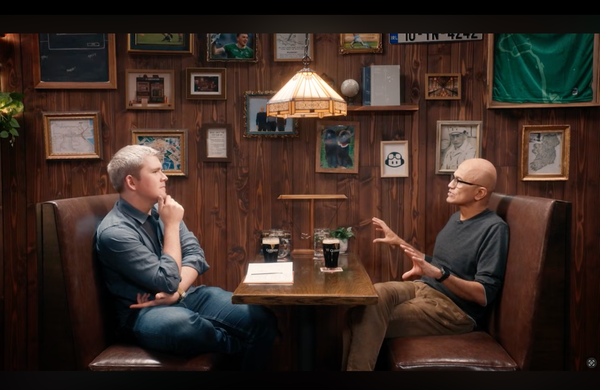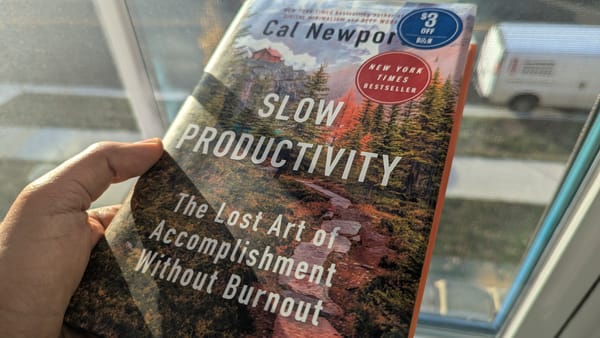From Euclid Avenue to Air Force One: Michelle Obama’s Roadmap of Family, Grit & Grace
From a cramped Chicago bungalow to the glare of the White House, Michelle Obama and brother Craig trace how love‑lit values, purposeful pivots, and stubborn empathy turn underestimation into lifelong fuel.
Rewinds to a South Side kitchen table: ⏰ 02:20
Michelle paints 7436 South Euclid as a heroic shoebox—the upstairs flat above Aunt Robbie where four Robinsons shared one bath, swapped stories over a lone Formica table, and learned that “palace” is a mindset, not square footage. She explains how pooling paychecks and walls with extended kin created an early masterclass in community economics: share rent, swap babysitting, stretch every dollar. Those Sunday dinners seeded her instinct to turn any room into a round‑table—later visible in Princeton dorm talks, South Side mentorship circles, and State‑Dining‑Room soirées. The message that still echoes loudest: resources may be scarce, but dignity is endlessly renewable—and the smallest home can birth the biggest horizons when every voice is heard.
Highlights Fraser Robinson’s quiet heroism: ⏰ 05:28
Craig recalls their father’s cane‑tapping stride—multiple sclerosis shrinking his muscles yet inflating his moral reach. Working a city boiler room, Fraser never missed a shift or a kid’s practice, teaching neighborhood teens to measure manhood by reliability, not pay stubs. He ferried teammates home, patched bikes, loaned ears—proof that ordinary jobs can bankroll extraordinary influence. Michelle notes how his refusal to take sick days etched a family mantra: your word is your wealth. Long before Secret Service details, Fraser modeled servant leadership in bleachers and block parties, convincing two impressionable siblings that strength isn’t the absence of weakness but the commitment to show up anyway—and keep showing up for others.
Spotlights Marian Robinson’s kitchen‑table advocacy: ⏰ 09:45
Second‑grade felt like remedial purgatory until Marian stormed the principal’s office, demanded bubble‑test proof, and vaulted Michelle straight to third grade. That riot‑act moment, Michelle says, wired her to answer every cry for help she hears—from South Side mentees to global girls’‑education campaigns. Craig adds that countless classmates lacked one adult willing to fight bureaucracy for them; the only difference between gifted and forgotten was a mother who cared. Marian’s example codified a lifelong algorithm: detect misplacement, confront power, and refuse to let potential idle in the wrong room. Her stealth superpower? Fierce protection delivered with gentle empathy—“put yourself in their shoes”—a dual lesson that still guides Michelle’s toughest negotiations.
Confronts the sting of white flight: ⏰ 15:09
One summer the neighborhood’s white families vanished “like the lights went off,” fleeing imagined property‑value doom. Young Michelle clocked the absurdity: if you run from Fraser Robinson, you’re running from free tutoring, not trouble. That mass exodus crystallized racism’s stupidity more than its cruelty—teaching her to interpret prejudice as someone else’s ignorance rather than her own inferiority. The shock also forged early urban‑sociology insights: block‑busting economics, fear‑based marketing, and the psychological cost to children left wondering “why are they escaping us?” Years later, on a national stage, she would answer white‑flight jitters with open‑armed optimism, insisting America is stronger when nobody bolts at the first sign of change.
Decodes the power of being underestimated: ⏰ 21:47
At Princeton, the “affirmative‑action kid” walked in doubting herself—then left with straight A’s and a revelation: gates swing for wealth, legacy, and athletics long before raw intellect. Instead of resentment, Michelle weaponized the discovery; she vowed to occupy every room that questioned her and “run it from now on.” Underestimation morphed into oxygen, sharpening competitive edges while inoculating her against external validation. She now teaches students to audit who’s whispering “you don’t belong” and label it a scam. Her closing roar: if the metric is flawed, outperform the metric—then expose it. That mindset later powered a daunting move from corporate law to community impact, and eventually to Pennsylvania Avenue.
Tracks a quarter‑life box‑checking crisis: ⏰ 26:45
By 27, Michelle sat in a 47th‑floor Sidley office, salary eclipsing her parents’ combined incomes—yet grief (dad gone, best friend gone) collapsed the skyscraper glamour into existential vertigo. She recognized she’d been mistaking résumé lines for purpose, “check, check, check,” never asking why law? Barack’s entry—part global wanderer, part community organizer—exposed richer life algorithms than partnership tracks. His nudge—don’t let money lock the cage—and Suzanne’s short, adventurous life convinced her to swerve toward service. Lesson delivered: career pathways are meant to be edited, not obeyed, and mortality can be the most honest career counsellor.
Chronicles the summer Barack flipped her ‘No’: ⏰ 30:11
First impressions were rain‑soaked and late; professional decorum screamed “hands off the intern.” Yet after weeks of sparring over optics, Barack crafted a marathon first date—Art Institute tour, lakeside skyline dinner, Spike Lee’s Do the Right Thing—a curated argument that shared values matter more than corporate gossip. Michelle’s month‑long resistance melted into partnership as she realized “maybe tacky can be destiny.” Craig jokes he gave the match two months; Marian quipped, “Well, at least he’s tall.” The anecdote spotlights how intellectual curiosity, cultural depth, and gentle persistence can override preconceived limits, birthing a union built on debates rather than décor.
Explains why young adults detonate tidy dual‑career myths: ⏰ 45:07
Michelle warns Steven Bartlett—career‑hungry and 32—that parallel dream‑chasing works until “your first joint project” cries at 3 a.m. Babies obliterate solo dragon‑slaying schedules; if one partner breastfeeds while the other still “keeps his figure,” unspoken resentment blooms. Her prescription: pre‑kid negotiations on travel, gym time, childcare ratios, and emotional labor credits. Otherwise the ledger of sleeplessness and stalled ambitions can fracture even power couples. The takeaway gleams with hard‑earned candor: success is not two meteors streaking independently but a single constellation drawn together—plan the pattern before the stars arrive.
Bares the hidden toll of fertility battles: ⏰ 49:58
Miscarriage, IVF injections, and the shock of a real biological clock—topics hushed in polite circles—get raw airtime. Michelle details juggling hormonal rollercoasters with a high‑powered job while Barack’s contribution was “come in a cup.” Insurance didn’t cover treatments; secrecy magnified shame. She dismantles myths: many pregnancies end quietly in loss, and waiting for perfect career timing can collide with dwindling egg reserves. Her plea: normalize women’s health talk, ease financial barriers, and share data so aspiring parents make informed choices earlier. Empathy again surfaces as the shield: understanding systemic silence helps couples battle biology together, not each other.
Illuminates empathy as armor against global hate: ⏰ 01:07:15
From birther conspiracies to a congressman mocking her body, Michelle endured a decade of vitriol. Yet she dissects the rage as societal pain mis‑aimed, noting “the world is unfair for more people than it is fair to.” Framing attackers as hurt rather than all‑powerful defangs their words and preserves personal joy. She balances that analysis with gratitude: the same nation that slung slurs elected her husband twice. Craig, former Big Ten coach, recites a mantra he lent the family: they’re doing the best they can for the most people—no one else I’d rather see in that seat. Combined, those lenses kept bitterness at bay and purpose intact throughout eight relentless years.
Reflects on stepping into elderhood after Marian’s passing: ⏰ 01:15:30
Losing their mother in 2024 left “nothing unsaid,” but also promoted Michelle and Craig to family elders—a mantle they honor through their Light Podcast. Mentoring, once kitchen‑table duty, now streams worldwide as they recycle Marian’s steady wisdom for listeners hunting guidance she once whispered to them. Michelle confesses that at 61 she finally feels licensed to prioritize joy, set unapologetic boundaries, and model how purpose evolves beyond public office. The episode closes with her invitation to everyone: keep teaching what you learn, because handing forward light keeps the teacher’s own path bright.
Michelle Obama: Girl from the South Side and former First Lady. Wife, mother, dog lover. Always hugger-in-chief.



